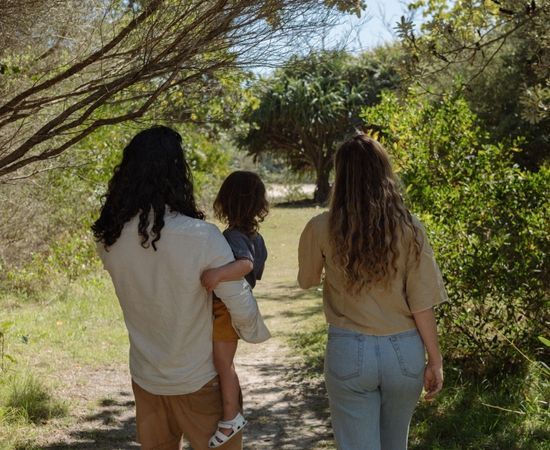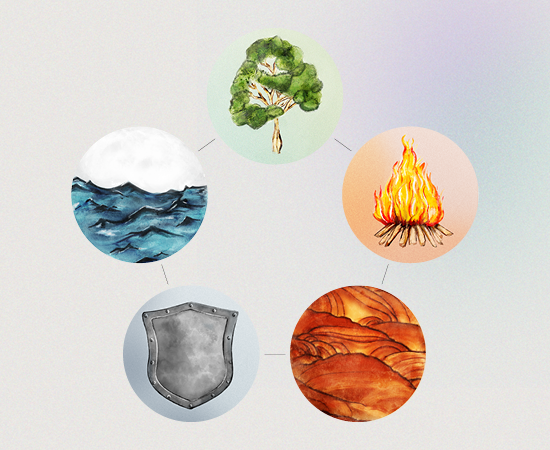Mental health benefits of spending time in nature
Sophia Power, BA Media
Quick overview
- Spending time in nature is an important part of how we’ve evolved as humans. Many of us have an innate desire to be in nature - no matter where we come from our how we grew up.[1]
- For city-dwellers, it’s important to have access to a variety of greenspaces. Urban greenspaces are vital to reducing stress and improving wellbeing.
- Simple changes to your routine can help to maximise your time in the great outdoors. Check out our easy-to-follow tips below.
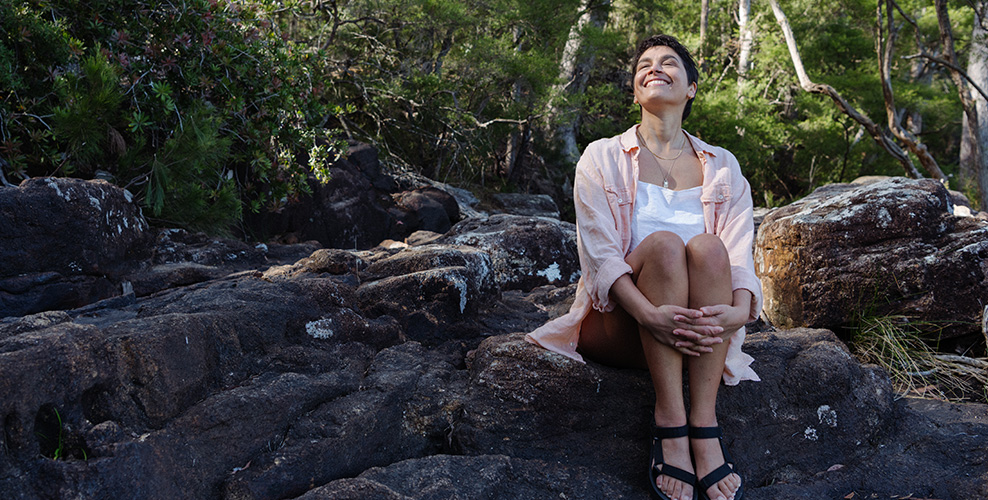
For most of human history, we’ve evolved alongside the natural environment. It’s only been since the industrial revolution that we’ve begun to move away from our roots.
In modern times, mental health research has revealed what many of us probably intuitively already knew about the benefits of nature. If a weekly scenic walk in nature can boost your mood, imagine what a daily dose of nature could do! Read on to find out about why time in nature is foundational to mental health.
Why should we spend time in nature?
The line between work and rest has become significantly blurred with the increasing use in digital technology. In these times, a day spent in front of a screen working or studying quickly becomes an evening of relaxing in front of a screen. It can leave you wondering why you’re feeling so pent up. A great deal of our lives are spent indoors, in front of screens, sometimes far from the expansive great outdoors that the body and mind craves. It’s little wonder that concepts like digital detox are becoming more and more commonplace.
The ‘biophilia hypothesis’ is the idea that human beings have an innate love for the natural world. It’s thought that this is universal – no matter where you’re from or how you grew up. It’s considered to be a significant part of our evolutionary history, so it’s locked into our DNA and passed down.[1]
Getting out into nature is part of what it means to be human, so it makes sense that the simple fact of fulfilling this human need results in a greater sense of wellbeing. The distinct switch from sitting in front of a screen to being out in the natural world gives a welcome and immediate change of gears and can help be a signal to relax, unwind and have fun.
A study that looked at urban residents in Australia who live in areas with higher amounts of vegetation and natural green spaces reported higher levels of wellbeing. The number of trees and how green a neighbourhood was also improved mental health and life satisfaction for city-dwellers.[2]
How does being outside improve mental health?
While some people might consider getting outdoors regularly to be a luxury, it should perhaps be considered essential. In fact, removing barriers to outdoor spaces is so important that it’s considered an issue of environmental justice.[3]
Research has shown that even exposure to nature sounds and images can have a psychological benefit, helping to relieve stress.[3]
Regularly connecting with the natural world goes beyond just stress reduction. Making the great outdoors a priority is also shown to:
- Increase attention span
- Boost happiness
- Facilitate exercise
- Encourage social activity
- Strengthen coping mechanisms for everyday life
The psychological benefits of spending time in nature go beyond just reducing stress. It also allows human beings to mentally flourish and properly recharge.[2]
It’s not just busy adults who can benefit from time spent in nature. There are positive psychological benefits for kids and teenagers who regularly spend time in nature including improved mental health, self-esteem, quality of life and resilience, as well as reduced low mood and stress.[4]
Longer term mental wellbeing is also linked to the proximity of green spaces, from tree-lined streets to private or shared community gardens.[4]
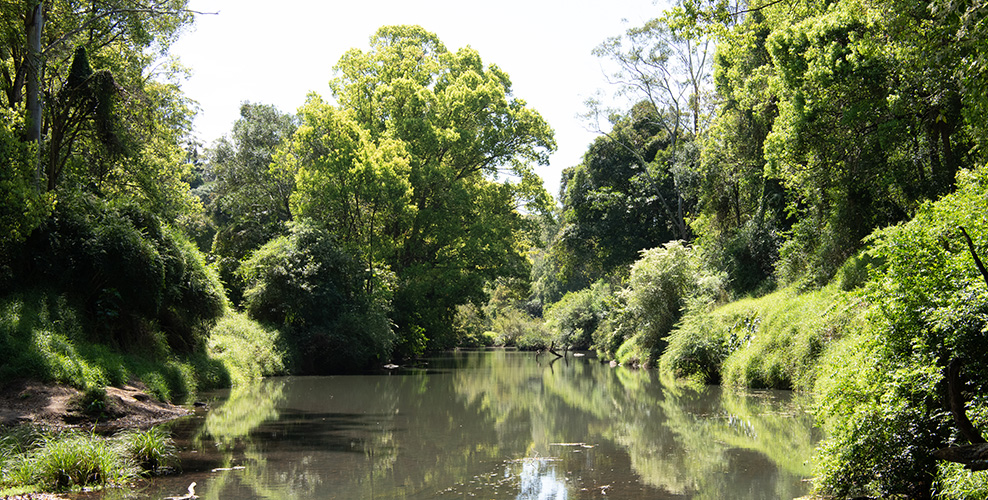
What counts as nature?
While wilderness is thought to be a landscape with no noticeable human influence, nature is less well defined and subjective. Do you love an urban street lined with Jacaranda trees, a sprawling inner city park, a rugged coastline hiking trail or the red earth desert and unique flora of Central Australia?[1] All of these landscapes count as nature and can have a benefit.
Regular contact with the natural world is important, whether that’s getting away camping for the weekend, or simply sitting under a tree on your lunch break. Each has proven benefits.[1]
So, no matter what your favourite landscape, the consensus is that nature, from beach to bush, is integral to the mental wellbeing of all people.
Relaxing in nature
The mental health benefits of being outdoors go beyond these more obvious experiences. Negative ions are found in abundance in nature settings – from ultraviolet rays and plant life to waterfalls, the ocean or anywhere else where water droplets collide (called shearing forces or the Lenard effect). Negative ions chemically react with our tissues and DNA and can positively impact the immune and respiratory systems.[5]
Negative ion exposure in studies show significant improvements in mental health conditions, including seasonal mood changes.[5]
The traditional Chinese medicine approach to nature
Traditional Chinese medicine (TCM) is innately linked with nature, reflected in the five element theory of wood, fire, earth, water and metal that make up the natural world, which are also applied to the human body. In TCM, it’s believed that the body is connected to the natural world and as the seasons change, so does the body’s needs. When winter rolls around, we may be more inclined to want to rug up and stay inside – but if we follow the seasonal principles of TCM, the body can be supported throughout the seasons while we still enjoy regular time outdoors.[6]
The fresh air that comes with nature settings is also important in Chinese medicine, as it replenishes qi (vital energy) and energy. Check out this video for a more in-depth explanation of how you can boost your qi with a daily dose of fresh air.
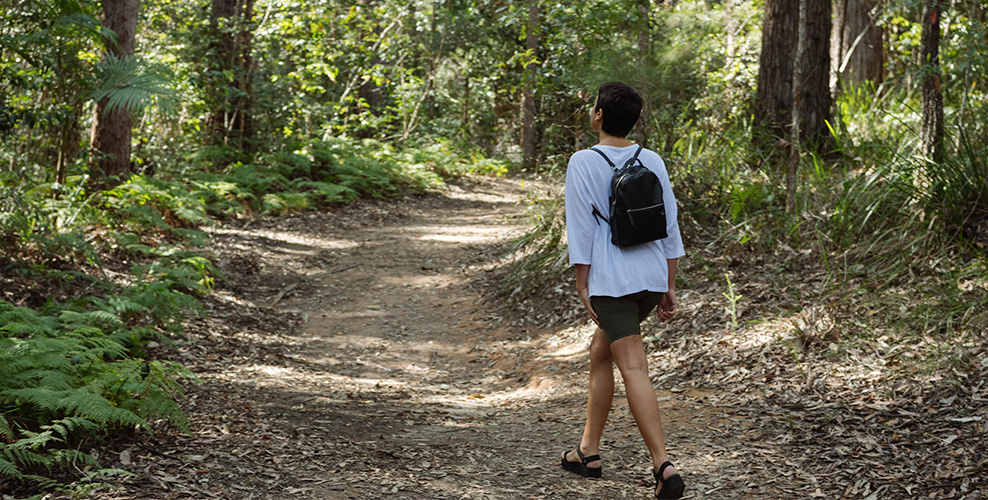
How to spend more time outdoors
Start small so that time outside can be easily incorporated into every day, and go from there. Here are some tips on how to get outside more:
- A detour down your favourite tree-lined suburban street to go get your morning coffee
- Eat your lunch in the park near your office
- A brisk coastal/park walk and catch up with a friend
- A stroll through your local botanical gardens
- Make a list of hikes or bike trails you’d like to do and tick one off every week or month. Check out the All Trails app for inspiration. For more info on how to get started if you’re a novice hiker, check out these tips from Tim Savage of Australian Hiker
- Plan a picnic or day at the beach for your next family outing or catch-up
- If you’re lucky enough to live close to the ocean or a swimming-friendly lake or river, try going for a swim or dipping your feet in once a week
- Give ‘forest bathing’ a try – a Japanese concept that has developed into a form of therapy to prevent potential health issues. Check out this how-to guide to forest bathing for beginners[7]
For more creative ways to strengthen your nature connection, check out our blog, 5 fun ways to feel more connected to nature.
Creating a mindful routine for spending time in nature is one of the simplest ways to take care of your physical and mental wellbeing. Not only is it free and enjoyable, but you may surprise yourself with just how easy it is to start including a daily dose of green!
References:
- Bratman GN, et al. Ann N Y Acad Sci 2012;1249:118-136.
- Houlden V, et al. PLOS ONE 2018;13(9):e0203000.
- Bratman GN, et al. Sci Adv 2019;5(7):eaax0903.
- Tillmann S, et al. J Epidemiol Community Health 2018;72(10):958-966.
- Jiang SY, et a. Int J Mol Sci 2018;19(10):2966.
- Wthn. Accessed November 2021, last updated July 2021 from https://wthn.com/blogs/wthnside-out/the-5-seasons-traditional-chinese-medicine
- ABC. Accessed November 2021, last updated October 2019 from https://www.abc.net.au/everyday/beginners-guide-to-japanese-forest-bathing/10369284


















